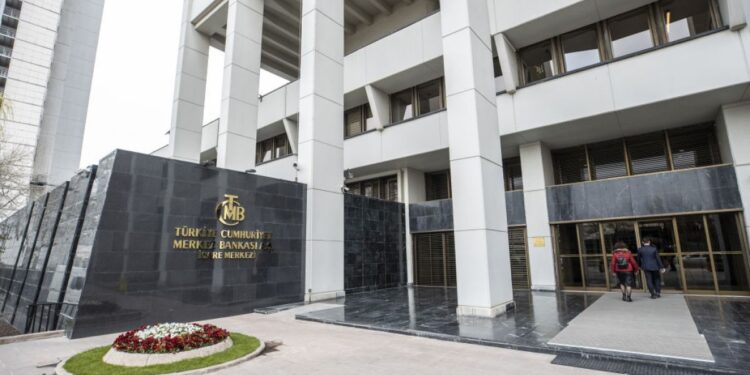The Turkish Central Bank kept the interest rate at 50%, in line with expectations, indicating its continued tendency to be cautious about inflation risks despite some improvement, which paves the way for a period that may extend to months without a shift in the direction of monetary policy.
This came in a statement issued by the bank following a meeting held by the Monetary Policy Committee of the Turkish Central Bank, headed by its Governor Fatih Kara Khan, today, Thursday.
The bank raised the interest rate last March by 500 basis points, citing deteriorating inflation expectations, then kept it in April, but pledged again this month to tighten monetary policy in the event of a “significant and continuing deterioration” in expectations.
The annual inflation rate rose to 69.8% last April.
Kara Khan expected earlier this month that inflation would reach its peak this May at a level ranging between 75 to 76 percent, before it begins to decline with the slowdown in domestic demand.
The bank stated that monthly inflation slowed to a limited extent last April, adding that the latest indicators indicate a slowdown in demand since the first quarter.
He stressed the continuation of the monetary tightening policy “until a significant and sustainable decline in monthly inflation.”
Monetary policy at full capacity
Last month, Turkish Treasury and Finance Minister Mehmet Simsek said that his country’s monetary policy was operating at full capacity and that the policy mix in the future would be more supportive, but more time was needed to see its effects and convince society as a whole.
The Turkish minister said that part of the structural transformation of the economy is in line with a new industrial policy, noting that it will be “very transparent and rules-based.”
“We want to direct resources to more productive areas, to reduce our carbon footprint, and to make the economy more competitive, but we also want to see how we can enhance growth potential to increase production,” he added, adding that green transformation is not a goal, but a necessity.
“When it comes to economic complexity, we know where we stand in the value chain. We are not where we would like to be, and that is why reform is coming,” Simsek said.
The Turkish Minister of Finance stressed at the time that addressing inflation remains the top priority, as well as enhancing competitiveness, increasing production and improving the investment climate.



